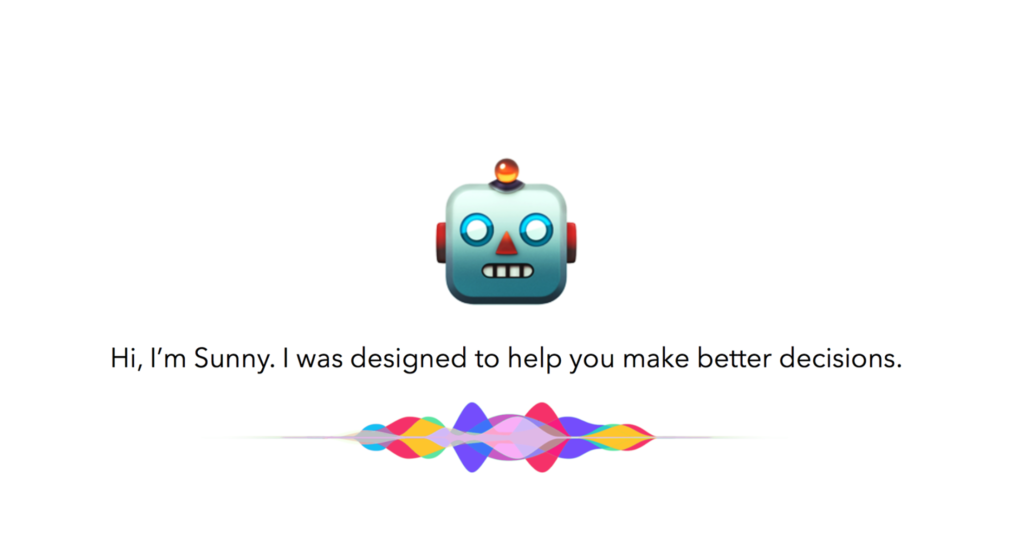
Smartware Labs is working to disrupt the healthcare industry by helping users lower their stress levels and risk of disease. We are looking to solve health related issues through preventative care.
Name: Smartware Labs
Location: Charlotte, North Carolina
Website: smartwarelabs.com
Product: A.I. called Sunny that will help users lead healthier lives.
Co-founder Interviewed: Shiv Kalola
Other Key Management Team Members: Niala Kalola – VP of Marketing; Parth Kalola RPSGT, MSBS – Sleep Technologist; Bryan Braswell, MPA, VP of Community
This article is part of our Business Startup Spotlight series featuring entrepreneurs and their companies. We hope that these founders’ interviews will inspire and motivate you as you undertake your own entrepreneurial journey.
Tell us a little about yourself with a focus on what motivates you:
I wanted to work for Apple but could not get an interview; therefore, I decided to learn how to build iOS apps and start my own company. The advantage was I could have the flexibility of a startup while piggybacking off a wildly popular brand with a loyal following. The disadvantage was I would not have the same resources to create and promote products.
Key to Startup Success: Customer Discovery
When did you establish your company and where did the idea originate?
I started Smartware Labs for a few reasons. Firstly, I wanted to innovate. My past experience in design, coding, marketing, analytics, business development helped get it done. I am not a master of any one particular skill, but I am a fast learner. If there was anything I could not figure out, I would find an online class or Google it.
My cousin, Parth, who is on the management team is studying to become an anesthesiologist. He and I are passionate about innovating. We were discussing his line of work as a sleep study specialist and how we could help people with sleep problems. Currently, people with sleep issues can go down to a lab and get hooked up to a big machine to have their sleep analyzed. Taking people out of their natural environment and asking them to sleep in a lab seemed counterproductive to us. We thought about how we can use a wearable to address sleep related issues. That is where the idea originated.
There is a divide between medical journals and common knowledge. Sunny aims to fill that gap by educating users about when they should sleep, how much water they should drink, average calories they should consume per meal, and what time to leave so they can get to their destination on time. Smartware Labs is working to disrupt the healthcare industry by helping users lower their stress levels and risk of disease. We are looking to solve health related issues through preventative care. Many diseases are caused by poor diet and hydration coupled with high stress levels. Medical research might get published in a popular journal, but it does not always reach the average end user who is consumed by life. We wanted to make it easy for end users to get educated on their health without having to go through a deep learning curve.
What is the one thing that sets your company apart from its competitors?
Smartware Labs is a lean company. There is four of us and there is no overlap in our skillset. Having a management team who are experts and visionaries helped bring Sunny to life. For another company to duplicate our success, they would need a much larger team. The wearable and A.I. industry is relatively young so there are not many industry experts in the field. Everyone is learning about A.I. in real time. It is a tremendous technology that has boundless possibilities and uses. Our ability to wear multiple hats, learning and adapting along the way is what makes us competitive.
What was the biggest challenge you faced while getting your company up and running, and how did you overcome it?
Our biggest challenge initially was hardware development. Since we are a lean team with very little funding, we were not able to make the required investment. Along with hardware development comes the liability of maintaining inventory as well as managing returns, exchanges, or damaged goods. We overcame this issue by partnering with a hardware company that specialized in B2B solutions. They provided us a foundation for a prototype. The inventory and hardware liability would be their responsibility. We could focus on the software solution.
Smartware Labs then faced an even bigger challenge. Once our hardware and software functioned as we needed, we ran into a bigger problem with Apple. Apple does not let third party hardware run in the background. This is not a widely known issue. There have been companies who have developed such as headphones, such as Doppler Labs, who raised $50M in funding and a $600k kick starter, and had to shut down because of this limitation. Companies like Apple and Google want to give their own hardware an advantage over third party hardware, so they reduce the capabilities of outsider products. During our testing, our phones were always active so we were not aware of this background issue until much later in our development cycle. Since the product did not work as we intended, we pivoted from the wearable to the A.I.
Are there resources you have utilized that other founders might find compelling or useful?
Bootstrapping is the most valuable technique a startup can learn. It will drastically reduce the cost and time whether you are making hardware or software. In the past decade, many B2B companies were born with the sole purpose to provide assistance to the B2C company. Finding existing hardware and software can help an early stage startup get further down their product development cycle without burning up scarce resources.
What steps have you taken to secure funding for your company and what, if anything, would you do differently if you had to start over?
The team members at Smartware Labs spent way too much time building our product in the early stages. It was a valuable learning experience.
If I could do things differently, I would have placed more emphasis on raising funding. There were times we could have created product simulations instead of an actual product. This would have reduced our cost and time to build while we pursued funding. Having funding initially would have extended our runway. We have burned through our seed funding and now we are operating on fumes.
6 Items to Prepare for a Pitch to Concept Stage Investors
Have there been any questions you have had as an entrepreneur of a fledgling startup that you had a particularly hard time finding the answers to?
When we first started, Smartware labs was driven by the idea of building a world changing product. We did not take the time to get investor feedback through the entire development cycle. That was probably the biggest mistake we made, not prioritizing the importance of funding. I have seen many companies who find talent who can work for equity, but that can only last for so long. People might be able to work for equity for a year or two, but a successful startup needs to plan for a five year run. Can your team work full-time for 5 years for just equity? If that answer is no, then you know funding should be your number one priority.
An Advisory Board: 7 Reasons They are Critical to the Scalable Startup [Infographic]
We only started reaching out to potential investors after our beta version grew to 10k users. It was only after we met with a few investors that we realized our business model was not attractive to potential investors. In business school, they teach you about how to make good investments, but they do not teach you how to court investors. This was a skill we are still learning to this day.
What challenges, if any, are you grappling with?
Our biggest challenge we are grappling with today is our business model. While our product is useful and popular, it is not attractive to a potential investor because we have not established a satisfactory revenue stream. Addressing this issue can be done by partnering with a hardware company that does not need to run in the background of the application. Smartware Labs is talking with a company called Muse, which makes EEG headsets that allow users to read their brain activity. We are looking for ways to incorporate this technology into Sunny, to provide users a more in-depth overview of their health. We are hoping the commissions we earn from hardware sales will satisfy a potential investor’s needs so we can secure the funding for R&D and marketing.
What is the most helpful tip or “hack” you’ve ever learned, stumbled across, or been given?
The best piece of advice we got, that I wished we had known earlier, is that it is a numbers game. We might have to meet with 100 investors to get 5-10 potential investors. In the beginning, it was very discouraging to meet with investors who did not believe in our company or product. Bootstrap is the most useful hack we have learned. There are many companies who are dedicated to open-source technology, who want you to take their research a step further by integrating it in new ways. Find those companies, and let your imagination take you to new heights.
Is there anything else you would like to share about your company?
Smartware Labs is giving Sunny away for free on the App Store to grow our user base. We are at 10k users today and need to reach 100k to secure a partnership with a hardware company. New users are needed to the hardware company in exchange for commissions. With that relationship, we hope to secure another investment so we can continue making enhancements to Sunny, ultimately helping more people lead healthier lives.
Are you familiar with other startups you believe should be spotlighted? If so, we would like to hear from you. Tell us about them, sharing in your comments below!










